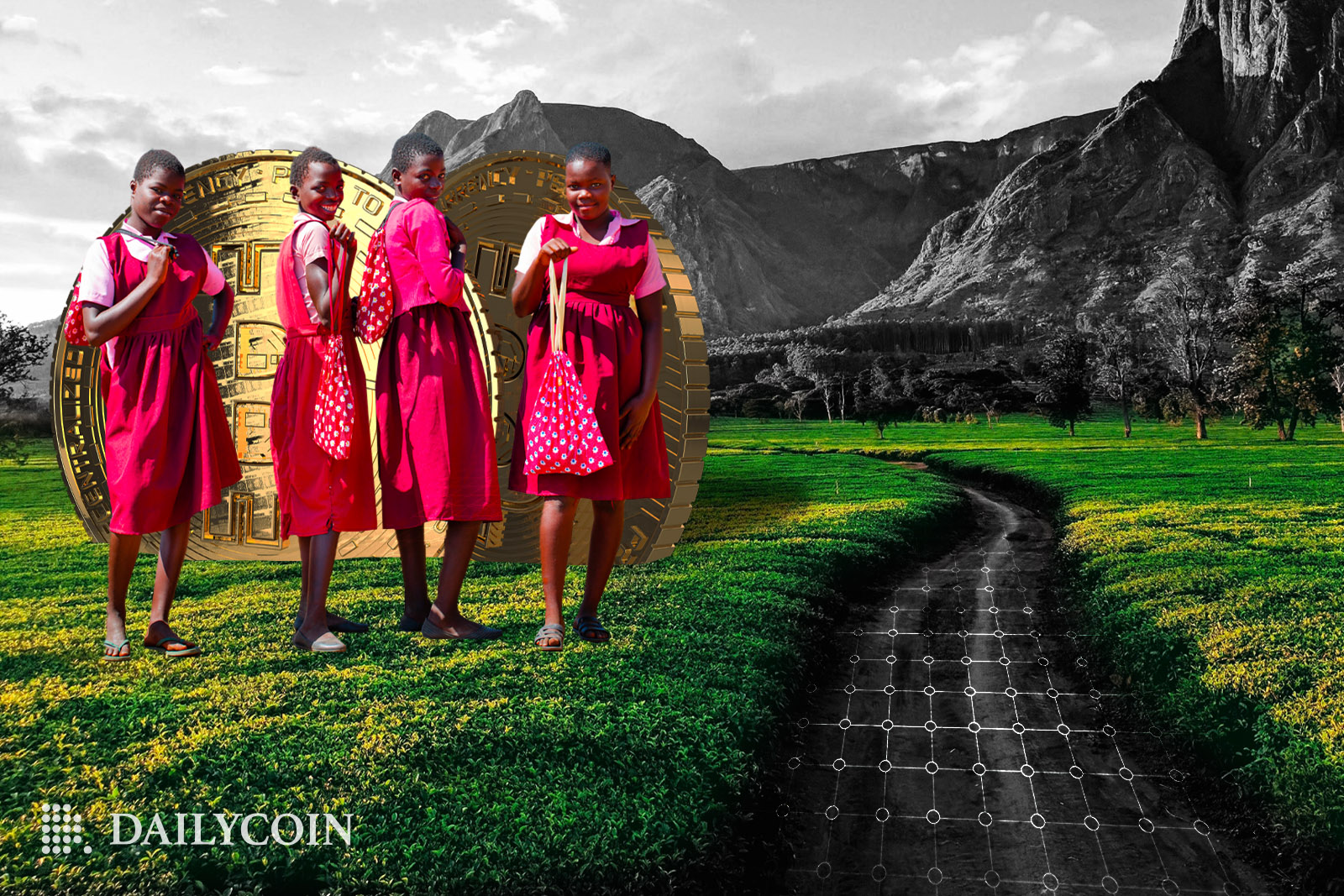
- A Bitcoin mining project in Malawi utilizes clean and excess hydro energy to connect more families to the grid while providing economic empowerment to the region.
- The project brings electricity to the community, job opportunities, and improved education, healthcare, and business access.
- The miners run off environmentally friendly hydropower, leaving a small environmental footprint.
A Bitcoin mining project in a remote corner of Malawi connects more families to the grid while delivering economic empowerment to an impoverished region. The company behind the project, Gridless, has tweeted that there are now “1600 families connected to this remote hydro minigrid in the mountains of southern Malawi.” The project uses 50 kilowatts (kW) of stranded energy to test this new Bitcoin mining site.
1600 families connected to this remote hydro minigrid in the mountains of southern Malawi. They have 50kW of stranded energy that we are testing out as a new Bitcoin mining site.
— Gridless (@GridlessCompute) January 21, 2023
Videos for context.
Still working on venting, wiring, etc. pic.twitter.com/Sxf8ABGPWH
Erik Hersman, CEO and co-founder of Gridless, stated that the project had already positively impacted the country, despite being in its early stages. The executives explained that the project had started years ago but could not be completed due to a lack of funding for purchasing meters to connect a larger portion of the population.
Sponsored
The Bitcoin mining project, which taps into clean, stranded, and excess hydro energy, is catalyzing the expansion of the mini-grid to connect more families.
Bitcoin Miners as a Solution for Excess Energy
Bitcoin miners are flexible but energy-hungry clients. They are a plug-in-and-play solution for sources of excess energy around the world. In Malawi, the miners run off environmentally-friendly hydropower.
In 2023, an increasing number of Bitcoin miners will be using energy that would otherwise go to waste while also supporting local communities. This can be seen in places like El Salvador, where Bitcoin mining is being done using geothermal energy, and in Canada, where it is helping to balance the load on the power grid and create jobs for people in the area.
A Model for Bitcoin Mining and Economic Development
This Bitcoin mining project in Malawi is a perfect example of how Bitcoin mining can bring not only financial benefits but also social and environmental impact to communities.
The use of clean, stranded hydro energy will not only help reduce the Malawian environmental footprint, but also bring power and the possibility of financial freedom to many families, not to mention the creation of job opportunities.
As nations around the world face energy access challenges, this model of Bitcoin mining provides a sustainable solution to bridging the energy gap and promoting economic development.
On the Flipside
- The Bitcoin mining industry has long been criticized for its high energy consumption and potential negative environmental impact.
- Bitcoin mining projects that tap into stranded energy while empowering local communities may not be a global answer to the rising energy challenges as not all communities have access to clean, stranded hydro energy.
Why You Should Care
This innovative approach to Bitcoin mining reduces the environmental footprint and promotes sustainable energy solutions and economic development in communities facing energy access challenges.
The project serves as a model for similar initiatives in other regions, highlighting the potential for Bitcoin mining to bring financial and social benefits to communities.
For More on Bitcoin Mining:
Is Green Bitcoin (BTC) Mining Possible? – DailyCoin
For More News on Crypto in Africa:
Crypto Adoption in Africa Is on the Rise – DailyCoin
